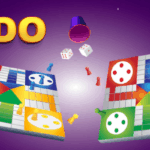No internet game sets the stage for this enthralling exploration of gaming that thrives without online connectivity. In a world increasingly dominated by online play, the charm of no internet games remains undiminished, offering a refuge for players seeking immersive experiences without the distractions of the digital web. From engaging puzzle-solving adventures to strategic challenges, these games span a variety of genres that captivate both the casual gamer and the dedicated strategist alike.
Delving deeper, we uncover the mechanics that define single-player offline games, where the thrill of competition is matched only by the serenity of solitary play. The appeal of these games lies not only in their entertainment value but also in their ability to sharpen cognitive skills and foster connections with friends and family during offline gatherings.
Types of No Internet Games

In a world increasingly reliant on connectivity, no internet games offer a delightful escape, allowing players to enjoy gaming experiences without online access. These games span various genres, suitable for a myriad of preferences and play styles. From engaging narratives to mind-bending puzzles, no internet games encompass a broad spectrum of gameplay, ensuring that there is something for everyone.
Single-player offline games are designed with mechanics that allow players to immerse themselves fully in the game world without the need for an internet connection. These games can range from action-packed adventures to serene explorations, relying on well-crafted narratives and compelling gameplay mechanics to keep players engaged. The essence of these games lies in their ability to offer a self-contained experience, often featuring rich graphics, intricate storylines, and intuitive controls.
Genres of No Internet Games
The diversity of no internet games is remarkable, with each genre catering to unique player interests. The following list highlights some of the most popular genres:
- Adventure Games: These games often feature deep narratives and immersive worlds, allowing players to explore vast landscapes while unraveling stories. Classic examples include titles like “The Legend of Zelda” and “Grim Fandango.”
- Puzzle Games: Engaging players with brain-teasers and strategic challenges, puzzle games like “Tetris” and “Candy Crush” can be enjoyed offline and foster critical thinking skills.
- Strategy Games: Players can engage in tactical gameplay with titles like “Civilization” and “XCOM,” focusing on resource management and strategic planning.
- Platformers: These games, such as “Super Mario Bros.” and “Celeste,” offer exciting levels filled with challenges that require skillful navigation and timing.
- Simulation Games: Games like “The Sims” and “Stardew Valley” allow players to create and manage virtual lives, offering a sandbox experience filled with creativity.
Puzzle and strategy games without an internet connection hold a special allure for many players. The mechanics of these games typically involve problem-solving and critical thinking, catering to individuals who enjoy mental challenges. These genres encourage players to strategize, plan, and think critically as they navigate complex levels or solve intricate puzzles.
The lack of internet connectivity allows players to focus solely on the gameplay, enhancing their overall experience.
The visual and auditory elements in these games are often finely tuned to create an engaging atmosphere. For instance, a puzzle game might employ soothing background music and captivating graphics to draw players into the experience. These elements work together to create a sense of accomplishment as players progress through various levels and challenges. Additionally, the ability to play offline means that players can enjoy these games anywhere, whether on a commute or in a cozy corner of their home.
Benefits of Playing No Internet Games

Engaging in no internet games offers a variety of cognitive and social benefits that enhance the overall experience of gaming. These offline activities not only provide entertainment but also serve as a platform for personal development and social interaction among friends and family members. The absence of online distractions allows players to immerse themselves fully in the gameplay, leading to enhanced mental engagement and interpersonal connections.
Cognitive Benefits of Offline Gaming
Playing no internet games stimulates cognitive functions and boosts various mental skills. Cognitive benefits arise from critical thinking, strategic planning, and problem-solving challenges that these games present. Engaging in such activities fortifies mental acuity and can have lasting benefits beyond the gaming experience.
- Improved Memory: Many offline games require players to remember rules, strategies, and positions of game pieces, enhancing both short-term and long-term memory capabilities.
- Enhanced Concentration: Players must maintain focus to succeed in offline games, which translates to better attention spans in real-life situations.
- Increased Creativity: Games that allow for open-world exploration or sandbox-style gameplay promote creative thinking as players develop unique solutions to challenges.
Problem-Solving Skills Development
No internet games often present complex scenarios that require players to think critically and devise strategies to overcome obstacles. The process of navigating these challenges fosters essential problem-solving skills that are applicable in various facets of life.
- Logic Games: Puzzle games like sudoku or crosswords push players to apply logical reasoning to find solutions, enhancing analytical skills.
- Strategy Board Games: Games such as chess or Settlers of Catan encourage players to plan several moves ahead, teaching them to anticipate consequences and adapt their strategies accordingly.
- Role-Playing Games: Engaging in tabletop RPGs enables players to tackle narrative dilemmas that require group collaboration and innovative thinking to resolve conflicts.
Social Benefits of Playing Offline, No internet game
The social aspect of playing no internet games is invaluable, as it fosters stronger relationships among players. Offline gaming creates opportunities for face-to-face interaction, enhancing communication skills and teamwork.
- Strengthened Bonds: Playing games with friends and family promotes a sense of belonging and shared experiences that can lead to lasting memories.
- Teamwork and Collaboration: Many offline games require players to work together towards common goals, improving cooperative skills and the ability to resolve conflicts amicably.
- Healthy Competition: Engaging in friendly competition helps players learn sportsmanship and resilience, essential traits that contribute to personal growth.
Popular No Internet Games
No internet games have captivated players for generations, providing entertainment without the need for connectivity. These games range from classic board games to modern mobile applications that allow users to engage in fun and challenging activities. The appeal of no internet games lies in their ability to offer immersive experiences, often enhancing social interactions among players.
This section explores some of the most popular no internet games, their unique features, and significant historical developments, as well as a comparison of classic versus modern iterations that highlight the evolution of gaming.
List of Popular No Internet Games
The following is a curated list of popular no internet games, showcasing their essential features that contribute to their widespread appeal:
- Solitare: A classic card game that challenges players to organize cards in a systematic order. Its simplicity and the element of strategy make it a timeless favorite.
- Chess: A strategic board game that requires critical thinking and planning. With countless strategies and combinations, it provides depth for both beginners and experts.
- Sudoku: A number puzzle game that enhances logical reasoning skills. Players fill a 9×9 grid with numbers while adhering to set rules, making it both engaging and educational.
- Candy Crush Saga (offline mode): A match-three puzzle game that captivates players with colorful graphics and addictive gameplay. Despite requiring initial internet access, it can be played offline once downloaded.
- Word Search: A classic puzzle where players find words hidden in a grid of letters. It promotes vocabulary development and provides a relaxing experience.
Development and History of Solitaire
Solitaire has undergone a fascinating evolution since its inception. The game is believed to have originated in the 18th century, with various forms being played in Europe. The digital adaptation of Solitaire began in the 1980s when it was included in the Microsoft Windows operating system. This inclusion propelled the game to global fame, resulting in millions of players engaging with it daily.
The game’s appeal lies in its blend of luck and skill, allowing players to strategize while also relying on the randomness of card distribution. The simplicity of its mechanics, combined with the satisfaction of completing a game, has solidified Solitaire’s status as a staple of no internet gaming.
Comparison of Classic and Modern No Internet Games
The gaming landscape has evolved significantly from classic to modern no internet games. While both categories offer engaging experiences, their differences are substantial, particularly in terms of gameplay, graphics, and user engagement.
| Aspect | Classic No Internet Games | Modern No Internet Games |
|---|---|---|
| Gameplay Complexity | Often simple rules and quick to learn. | Can feature complex rules with layered mechanics. |
| Graphics and Aesthetics | Minimalistic design often based on physical pieces. | Rich graphics and animations, enhancing visual appeal. |
| Social Interaction | Primarily face-to-face with friends and family. | Can include online leaderboards and community challenges even in offline modes. |
| Accessibility | Requires physical components (cards, boards, etc.). | Can be played on devices, often with a variety of settings. |
The transition from classic to modern has not diminished the charm of traditional games; instead, it has enhanced the overall gaming experience, appealing to a broader audience while still retaining the essential qualities that make them enjoyable.
Wrap-Up
In summary, no internet games offer a unique blend of entertainment, cognitive benefits, and social interaction that enriches our lives in unexpected ways. As we reflect on the diverse range of popular offline games, their histories, and their impact on gaming culture, it becomes clear that these games are more than just pastimes; they are gateways to creativity and connection that invite us to step away from our screens and engage with the world around us.


